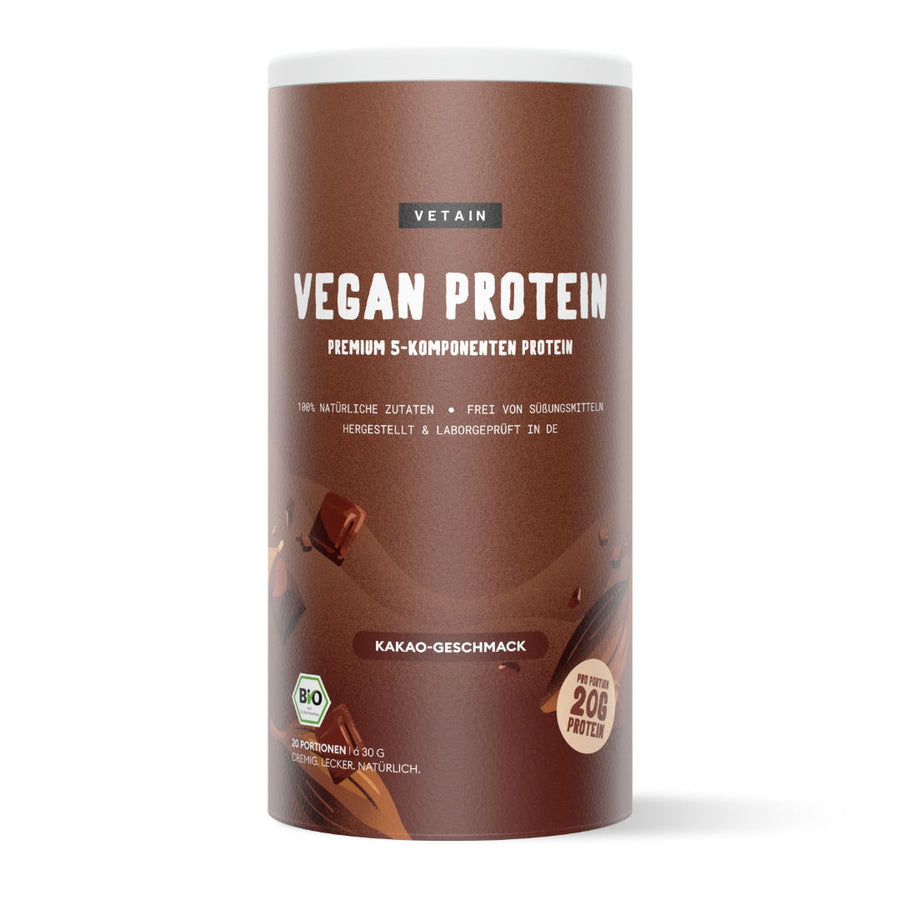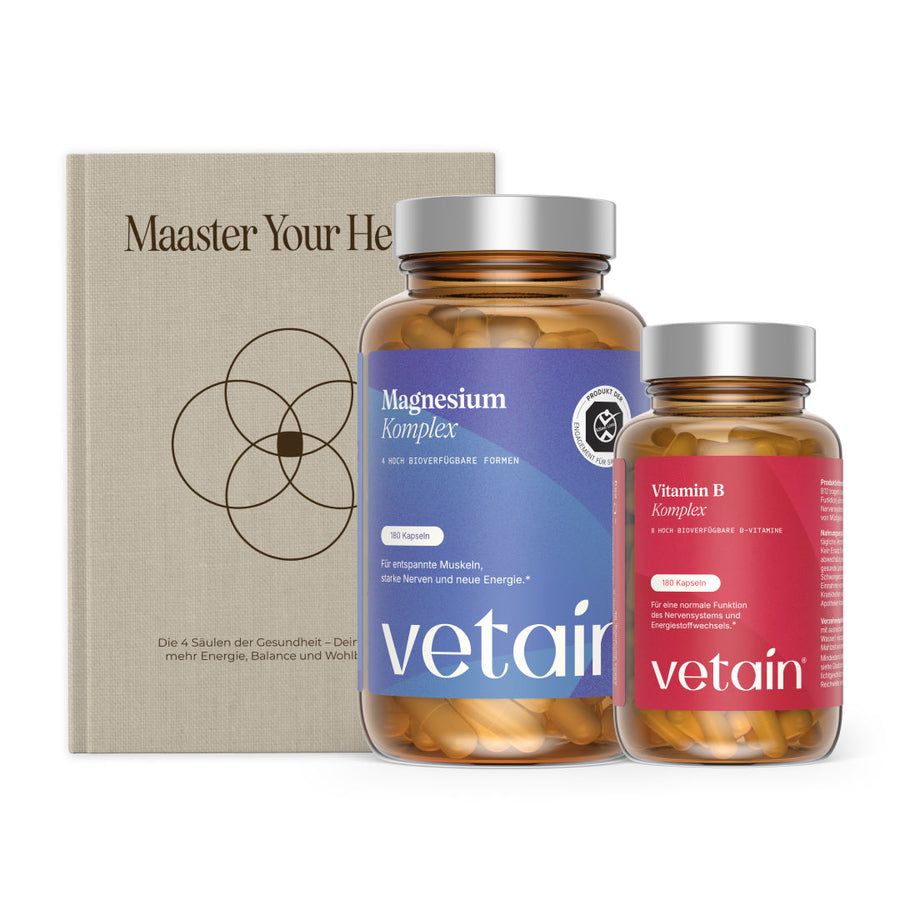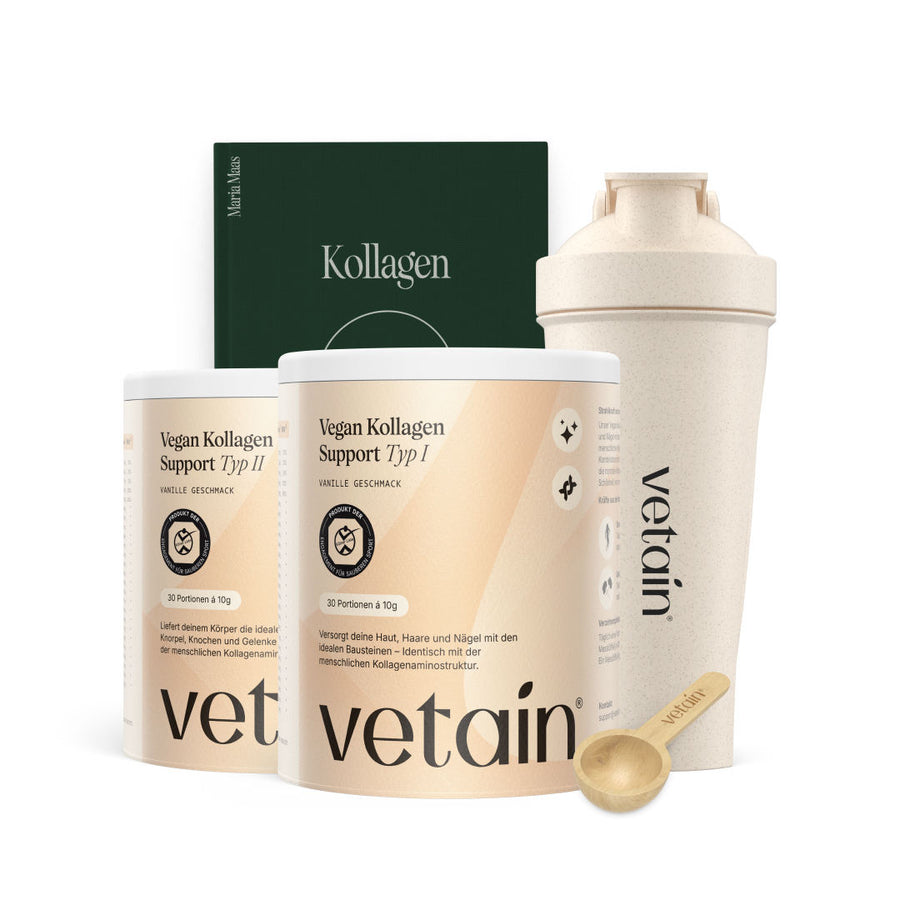Capsules, tablets & co. are far more than just beauty boosters for women. In fact, they can provide an additional source of nutrients in certain life stages and adapt along with us and our needs. Whether it’s omega-3 fatty acids for the heart or vitamin D for the bones—supplements can contribute to targeted nutrient intake.
But not all supplements are generally recommended for all women. That’s why today we’re asking: Which dietary supplements are beneficial for women? In the next few minutes, you’ll find out everything you need to know.
Your knowledge to go: Which dietary supplements are beneficial for women?
Which supplements are useful for women depends on many factors such as life stage, diet, and activity level.
Basically, the same recommendations apply as for the general population—with a few specifics.
Especially during pregnancy and breastfeeding, nutrient needs increase.
Why supplements at all?
Okay, before we dive into “Which supplements are useful for women,” let’s first answer two questions: Why are supplements important for women? And why is there a difference between women’s and men’s needs?
It comes down to several points:
Higher nutrient needs in different life stages such as pregnancy or breastfeeding
The influence of hormones: constantly fluctuating hormone levels
Social pressure: frequent diets or new nutrition trends can affect nutrient intake
Chronic stress lowers appetite while increasing nutrient needs
Compared to men, women often require fewer calories but the same or even more micronutrients
Supplements can therefore play a particularly important role in women’s diets! If you feel a bit lost, check out our article “What are dietary supplements?” for a solid introduction.
So, basics covered! Let’s get to today’s topic: Which dietary supplements are useful for women?
Which supplements are useful for women in different life stages?
A woman’s body and her nutrient needs change throughout life.
One thing always stays the same: as a standard recommendation in Germany, healthy adults are advised to consume iodine (via iodized salt*), vitamin D (especially in winter), and omega-3 fatty acids (if little or no fish is eaten).
On top of that, certain life stages bring additional needs:
The menstrual cycle and supplements for women
Constantly changing hormone levels and various processes in the body strongly affect women’s nutrient needs and supply. Some women barely notice, others feel it more.
Who needs which supplements is highly individual. So we can’t give universal recommendations here.
Still, keep an eye on your magnesium intake and your vitamin B6—vitamin B6 helps regulate hormonal activity—and get your iron status checked! Studies show many young women don’t meet their iron needs.
But caution: iron should never be supplemented “just in case”—only if a deficiency or insufficiency has been diagnosed.
+Standard recommendation (iodized salt, vitamin D, omega-3 fatty acids)
Special demands during pregnancy
Pregnancy changes a woman’s nutrient needs—no surprise, as suddenly two lives must be nourished. Because this is such a broad topic, we’ve dedicated a full article: “Which supplements are beneficial for women during pregnancy?” with all the key info for you and your baby.
Breastfeeding: nourishing two lives
After birth, many women may have low iron stores. Get your iron status checked by a doctor—supplementation only makes sense if there’s a proven need. Depending on diet, it can also be helpful to add calcium or magnesium.
+Standard recommendation (iodized salt, vitamin D, omega-3 fatty acids)
Menopause as a challenge
Menopause again changes nutrient needs. Along with hot flashes, sleep issues, and weight gain, the question arises: “Which supplements are useful for women now?”
Particularly important now: calcium and vitamin D, as they support bone health. Some women may also benefit from B vitamins and magnesium.
+Standard recommendation (iodized salt, vitamin D, omega-3 fatty acids)
By the way: there are specific “supplements for women 50+.” These often contain a mix of nutrients—not all of which every woman needs. Check labels carefully or build your own routine.
Minerals and vitamins for older women
What starts during menopause continues later: calcium and vitamin D remain important. Also, the immune system needs support. Ensure adequate vitamin C, as it contributes to normal immune function. Otherwise, assess individually: What are your needs and health status? Are there conditions that may contraindicate supplementation?
We’ll cover this in more detail in a dedicated article soon.
+Standard recommendation (iodized salt, vitamin D, omega-3 fatty acids)
Which supplements are useful for women with different lifestyles?
It’s not only life stage but also lifestyle factors that affect nutrient needs and supplement use. Diet, activity, and stress all play a role.
Let’s take a look:
Vegetarian and vegan diets
Which supplements are useful for women who eat vegetarian or vegan? Here’s how it comes together:
Standard recommendation (iodized salt, vitamin D, omega-3 fatty acids)
Recommendations for the specific life stage (pregnancy, etc.) → see above
Special advice for vegetarian and vegan diets—see our article “Supplements in a vegetarian diet” for more!
Go through the points and make notes of what applies to you.
Supplements for muscle building in women
Active women, especially those looking to build muscle, may add targeted nutrients to better handle physical stress. Useful supplements include magnesium, creatine, and zinc. Extra protein also supports muscle maintenance and growth.
+Standard recommendation (iodized salt, vitamin D, omega-3 fatty acids)
Don’t forget recovery. Read more here: What helps against sore muscles?
%-product_content-%
Stress
If life is hectic, pay attention to your vitamin B6, magnesium, and vitamin C intake. Vitamin B6, for example, supports normal nervous system function.
+Standard recommendation (iodized salt, vitamin D, omega-3 fatty acids)
And since you’ve got better things to do in stressful times than Googling supplements, just screenshot this. You’ll be set the next time stress hits.
Side note: The importance of protein for women
Protein matters at every stage of life for women. It’s not only the building block of muscles—it also helps maintain normal bones.
Protein can come from foods like legumes or nuts. You can also support intake with high-protein products like shakes or bars.
%-split_content-%
Do I need supplements?
Whether or not you need supplements depends on individual factors.
Here are some signs supplementation might be useful:
You’re in a special life stage (pregnancy, breastfeeding, menopause, etc.).
You can’t cover your needs through diet alone.
You eat a vegetarian or vegan diet.
You’re very active and train regularly.
You’re under a lot of stress.
You notice potential deficiency symptoms (medical check advised): constant fatigue, sleep issues, frequent infections, hair loss, etc.
Always remember: supplements are just a supplement to a healthy diet—not a replacement. Always try to cover needs through a balanced diet first.
Conclusion
In summary: Which supplements are useful for women? Key ones include vitamin D, iodized salt, and omega-3 fatty acids. Others like magnesium or iron may also be relevant for you.
Most importantly: always get well informed before supplementing, and seek medical or nutritional advice if needed!
Final tip: You’ll often see “vitamins for women 30+” or “40+.” These can be a guide, but they often contain a mix of nutrients you don’t necessarily need. After all, at 30 we’re not all in the same life stage or lifestyle—so our supplement needs aren’t identical either.
Literature
BZfE (Bundeszentrum für Ernährung) in der Bundesanstalt für Landwirtschaft und Ernährung (BLE); Seeher, J.; Thiesmeier-Dormann, C. & Schmidt-Packmohr, C. (2023). Vitamine, Mineralstoffe und Co. Wann ist eine Nahrungsergänzung sinnvoll? In: Kompass Ernährung, 27(1).
DGE (Deutsche Gesellschaft für Ernährung e.V.) (o.J). Referenzwerte. https://www.dge.de/wissenschaft
/referenzwerte/Smith-Ryan, A. E., Cabre, H. E. & Moore, S. R. (2022). Active Women Across the Lifespan: Nutritional Ingredients to Support Health and Wellness. In: Sports Medicine, 52(S1).
*Iodized salt is not a “supplement” in the usual sense, but it’s listed here because intake is important—and many people still don’t realize its significance. Actual iodine supplements are only needed in specific life stages and are not generally recommended!
Do you have questions? Feel free to send me an email—I’d love to hear from you! :)
The information shared in this article does not replace individual medical or nutritional advice.

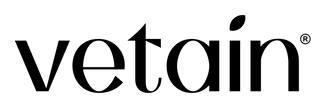

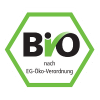

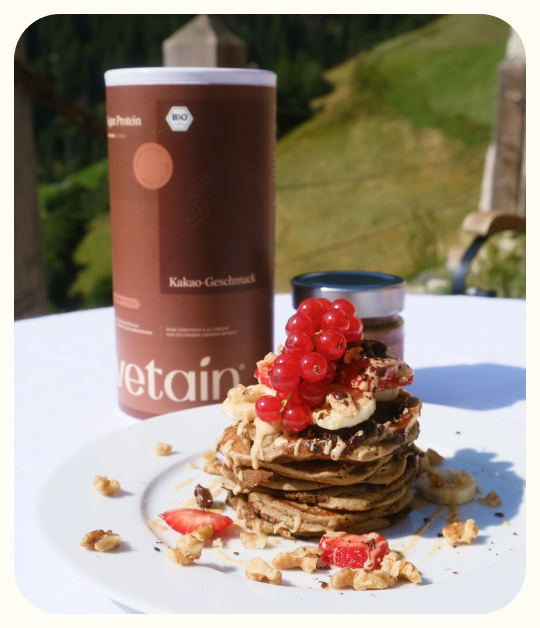


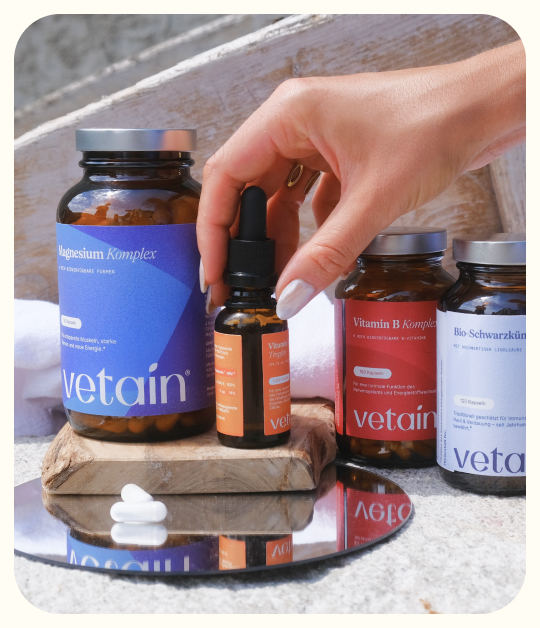






 9 Min
9 Min
 Zuletzt aktualisiert am 30.10.2025
Zuletzt aktualisiert am 30.10.2025

